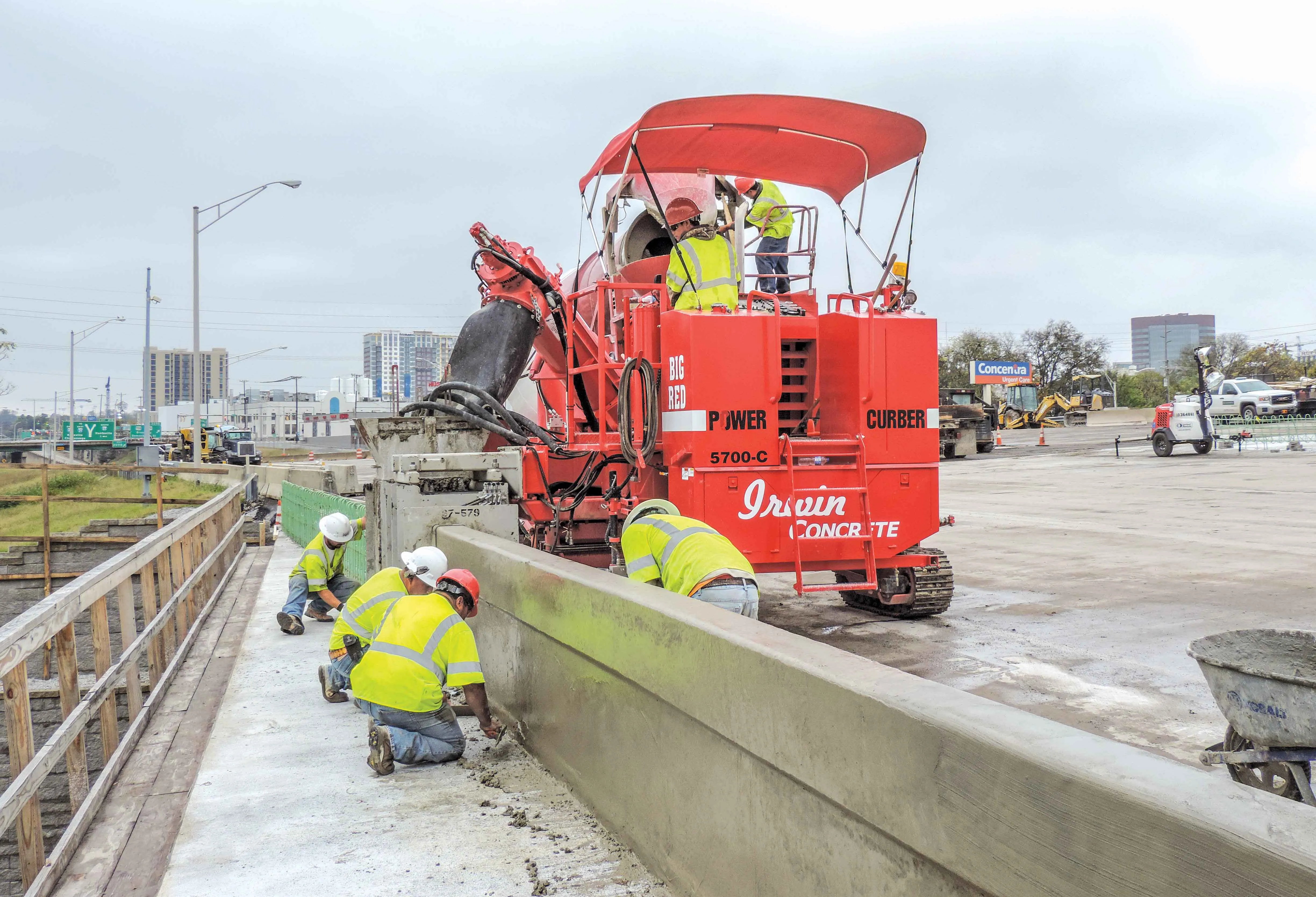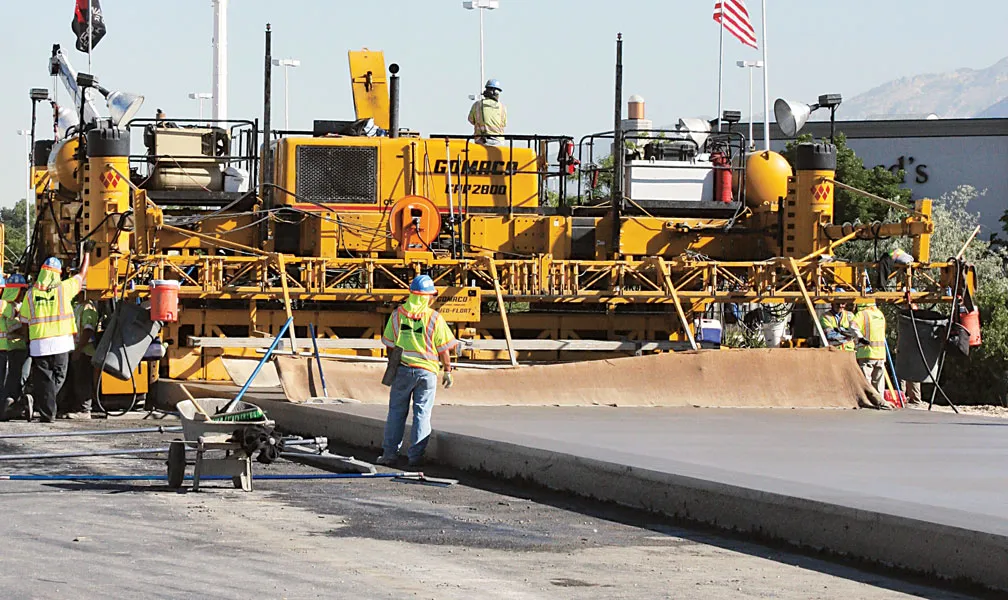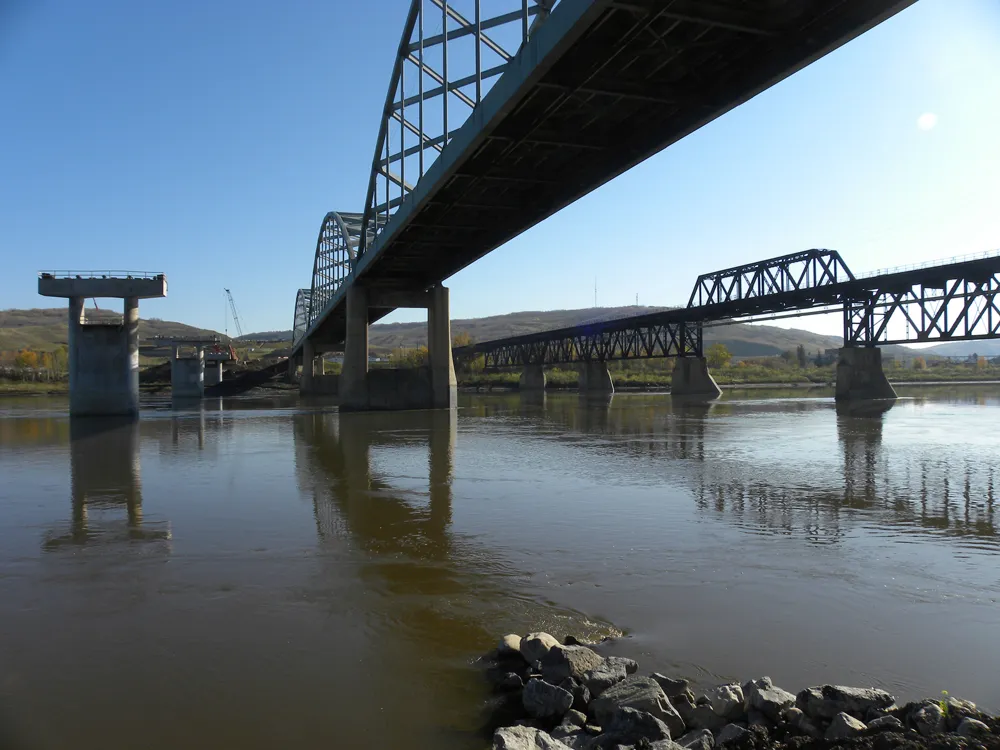
The Bridge connects Richmond and New Westminster with North Delta in the Greater Vancouver area. The moveable barrier replaces a static concrete barrier in an attempt to increase traffic flow during peak periods.
The Alex Fraser Bridge joins other bridges around the world, such as the Benjamin Franklin Bridge over the Delaware River in the US, that now use a zipper to change lane directions.
Lindsay’s Road Zipper system consists of T-shaped moveable barriers connected to form a continuous wall. Using a conveyor wheel system, the Road Zipper vehicle repositions the barrier system at up to 16kph, creating a moveable ‘zipper lane’.
On the Alex Fraser Bridge, it creates four lanes northbound and three lanes southbound during morning rush hour. At all other times, there will be four lanes southbound and three lanes northbound.
The Alex Fraser Bridge opened in 1986 and was designed to allow for the number of lanes to be increased. At first, only four of the six lanes were used for vehicles. As traffic increased, pedestrian and cycling lanes were moved to the perimeter of the bridge so that all six lanes could be used for vehicles.
British Columbia’s transport department will now re-stripe the lanes, This will add a seventh lane along with the new counter-flow moveable barrier system to improve capacity and help reduce traffic congestion during rush hour.
An average of 119,000 vehicles move across the bridge every day. Officials say motorists could save six minutes on their morning (northbound) commute and up to 16 minutes during the afternoon rush hour (southbound).
“Predicting traffic flow can be difficult – particularly if you’re looking 20 or 30 years into the future. The key to any design is building in as much flexibility as possible from the beginning, so you can efficiently accommodate the needs of a growing population,” said Chris Sanders, senior vice president of Lindsay Transportation Solutions.
Lindsay, based in the US state of Nebraska, said that its revenue from the contract will be around US$14 million.









